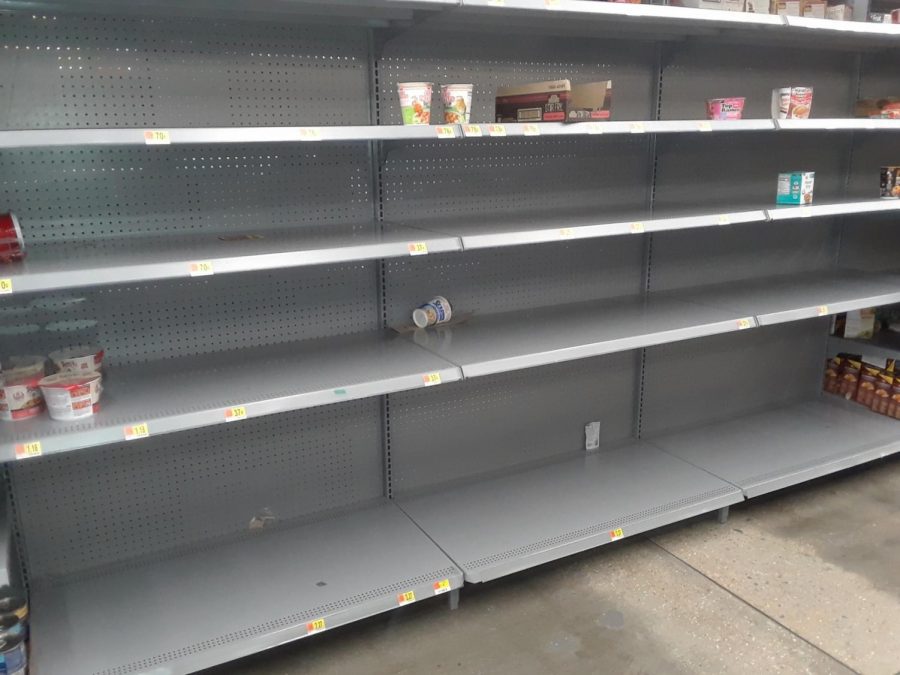Are We Having a Food Crisis?
April 21, 2020
Spreading much like the Australian wildfires earlier this year, COVID-19 took the whole world by surprise. A multitude of factors, including underestimation of the virus’ potential harm and the individual rights of Americans to simply do what they want, have allowed the virus to remain largely unchecked in the U.S. A large concern of this pandemic is of a disruption to our food supply chain. Obesity and just general largeness of life are as much American symbols as football and barbecues, so the thought of not having food in the U.S. may be unthinkable for some.
The chances of any major issue arising due to circumstances is unlikely, according to The New York Times, citing food industry leaders and observers of the evolving events. Shortages can increase but are insisted to be more of an inconvenience than a huge problem. The Department of Agriculture also reassures that there is no evidence that coronavirus can be transmitted through food or its packaging. Many food and meat processing plants, however, are still being closed, due to fears of the uncertain and for the safety of workers and employees. Throw consumer hoarding and panic buying into this mix and, sooner than you know it, a lot of our food choices just became more limited.
As people stock up on essentials, keep in mind that relative production has slowed due to enactments of distancing directives and other safety guidelines. This all serves to contribute to a growing problem that may get out of hand if nothing is done about it soon. Across the country, truck drivers are working overtime to make deliveries amid rising demand for goods.
Why do people panic buy, though? Doesn’t it just cause unnecessary strain and alarm? Nicholas D’Agostino III, president of the New York Food Group and owner of D’Agostino Supermarkets said, “It’s very similar to what we experience prior to an expected snowstorm, the difference here being there’s no end in sight,” and he couldn’t be more right. Uncertainty breeds anxiety, and anxious customers need to buy their toilet paper, cleaning supplies, bread, eggs, and milk.

















































































































































